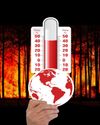
Nanomedicine area of nanotechnology which deals with highly specific molecular diagnostics, prevention, and treatment of diseases using nanoscience and technology. It refers to the part of nanotechnology which deals with healthcare to make medically and pharmaceutically useful drugs. Nanomedicine contains drugs belonging to a multifunctional domain whose properties are programmable. They find application in biomedical detection, prevention, and treatment. The global size of the nanomedicine market in 2016 was USD 138.8 billion and is estimated to reach up to USD 350.8 billion in 2025. Nanotechnology involves the adoption of nano-scaled miniaturizations of large structures that have revolutionalized the administration of drugs. Nanodriven therapies and drugs influence the global market of nanomedicine by attributing to its growth in the future. The increase in demand for nano based reagents that are biocompatible and offer longer life has led to the exploitation of the field.
The recent advancements in the nanomedicine market and the successful results of the drugs on cancer have driven nanotechnology towards tremendous growth in a short period. Many leading companies have started to uptake nano based products by building partnerships and promoting nanomedicine based startups. In November 2015, a global collaboration was made between Ablynx and Novo Nordisk along with the signing of a licensing agreement that covered the nanomedicine development through novel drugs. The signed partnership has the potential for an increase in the net rate annually of products involved in the uplift of market growth. Nanomedicine development is a vast process covering lab to market for approval which is costly and time-consuming along with stringent regulations.
この記事は Scientific India の September - October 2020 版に掲載されています。
7 日間の Magzter GOLD 無料トライアルを開始して、何千もの厳選されたプレミアム ストーリー、9,000 以上の雑誌や新聞にアクセスしてください。
すでに購読者です ? サインイン
この記事は Scientific India の September - October 2020 版に掲載されています。
7 日間の Magzter GOLD 無料トライアルを開始して、何千もの厳選されたプレミアム ストーリー、9,000 以上の雑誌や新聞にアクセスしてください。
すでに購読者です? サインイン

Building world's 1st pyramid
In a preprint study published this summer, researchers proposed that ancient Egyptians built the world's first pyramid the 4,700-year-old Step Pyramid of Djoser, which sits on Egypt's Saqqara plateau using a \"modern hydraulic system\" powered by a long-gone branch of the Nile River.

Climate change arms the world, ovarian cancer pulls the trigger.It's time we disarm them both
Climate change, driven by human activities, leads to environmental changes such as rising temperatures, altered weather patterns, and increased pollution.

Climate Change Added 18 mph to Hurricane Wind Speeds over Past 5 Years
High ocean temperatures caused by global warming boosted maximum intensities for most storms between 2019 and 2023, as well as for every 2024 hurricane.

How Indian Vulture Decline Led to 500,000 Deaths in 5 Years
Once a common sight across India, vultures were abundant scavengers, often seen circling landfills in search of carcasses.

Understanding Monkeypox: Insights and Implications
Monkeypox, a viral zoonotic disease, has gained significant attention in recent years due to its re-emergence and sporadic outbreaks globally.

AI predicts that most of the world will see temperatures rise to 3°C much faster than previously expected
Three leading climate scientists have combined insights from 10 global climate models and, with the help of artificial intelligence (AI), conclude that regional warming thresholds are likely to be reached faster than previously estimated.

Infrared Radiation: A New Player In Mosquito Host-Seeking
The sound of mosquitoes is all around us when the sun sets and the air gets warm and sweltering.

Fish Oil May Benefit to Cure Alzheimer's, disorder: new findings
The benefits of fish and fish oil consumption are well-known in medical science as fish is considered a precious food resource that provides sufficient nutrition to humans.

A new class of antivirals could help prevent future pandemics
The arrival of Paxlovid in December 2021 marked another turning point in the COVID-19 pandemic an effective antiviral that has since successfully treated millions.

Turning carbon emissions into methane fuel
Chemists have developed a novel way to capture and convert carbon dioxide into methane, suggesting that future gas emissions could be converted into an alternative fuel using electricity from renewable sources. Carbon dioxide (CO2) is a greenhouse gas that accounts for a large part of Earth's warming climate, and is produced by power plants, factories and various forms of transportation.